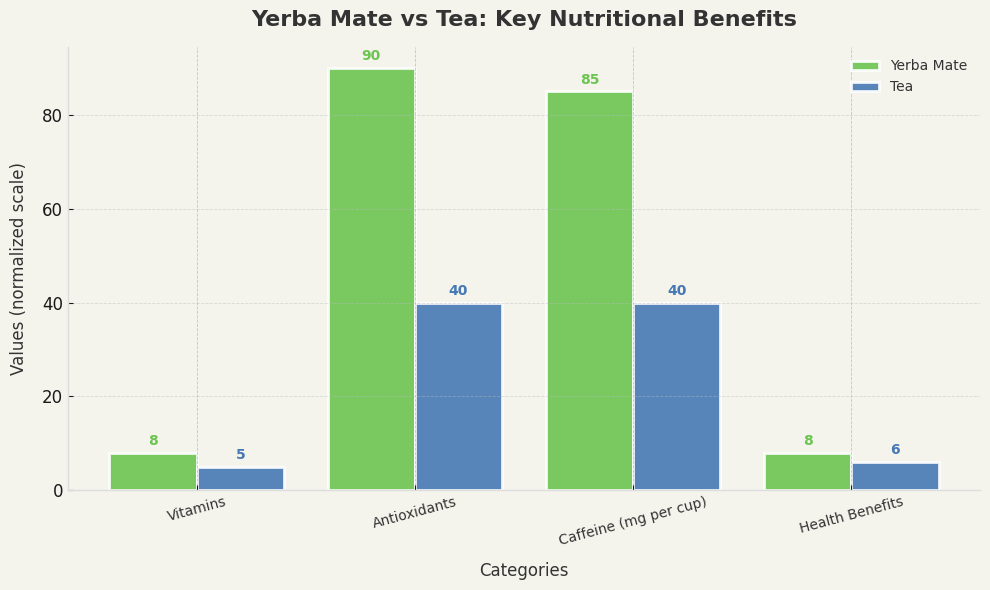Yoruba Mate vs TEA
![]() 1. Natural Energy Boost
1. Natural Energy Boost
- Yerba Mate: Contains caffeine, theobromine, and theophylline, providing a balanced energy lift without crashes.
- Tea: Contains caffeine, but in lower amounts than Yerba Mate, offering a milder energy boost.
2. Antioxidants
- Yerba Mate: Rich in polyphenols and saponins, known for their antioxidant properties.
- Tea: Also high in antioxidants, particularly catechins (in green tea) and theaflavins (in black tea).
- Both have strong antioxidant benefits, but the composition differs.
3. Nutrient Content
- Yerba Mate: Contains vitamins (A, B-complex, C, E) and minerals like potassium and magnesium.
- Tea: Contains trace minerals and fluoride but fewer vitamins than Yerba Mate.
4. Supports Digestion
- Yerba Mate: Traditionally used to stimulate digestion and relieve constipation.
- Tea: Herbal teas (e.g., peppermint, ginger) are often used for digestion, but plain green or black tea has less pronounced effects.
5. Mental Focus
- Yerba Mate: Enhances focus due to caffeine combined with theobromine.
- Tea: Contains L-theanine, which promotes calm focus without overstimulation.
![]() 6. Weight Management
6. Weight Management
- Yerba Mate: May increase metabolism and reduce appetite.
- Tea: Green tea has been linked to fat oxidation and weight loss benefits.
7. Immune Support
- Yerba Mate: Saponins and antioxidants support the immune system.
- Tea: Some teas (e.g., echinacea, chamomile) have immune-supporting properties, but black/green tea is less focused on this.
8. Heart Health
- Yerba Mate: May improve cholesterol levels and reduce inflammation.
- Tea: Linked to lower blood pressure and improved heart health, especially green and black teas.
9. Detoxification
- Yerba Mate: Acts as a mild diuretic, aiding kidney function.
- Tea: Herbal teas can assist in detoxification, though plain tea has less of this effect.
10. Physical Endurance
- Yerba Mate: Popular for sustained energy during exercise due to fat oxidation.
- Tea: Provides a gentler energy boost and hydration but less focus on endurance.



 1. Natural Energy Boost
1. Natural Energy Boost 6. Weight Management
6. Weight Management